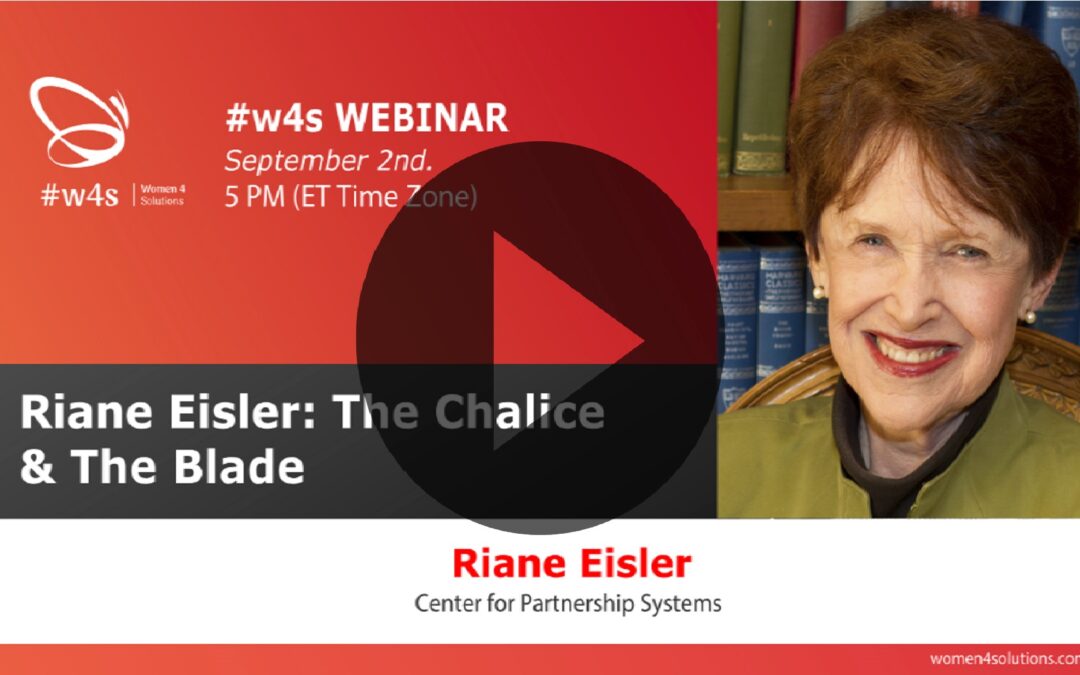Riane Eisler‘s influential book, «The Chalice and the Blade: Our History, Our Future,» has seen a resurgence of popularity in Spanish speaking countries in recent years. This groundbreaking work, which has been in print for over 30 years, delves into the history of human societies and explores the possibilities for a more equitable and sustainable future.
Eisler, a social systems scientist, cultural historian, futurist, and attorney, has transformed the lives of people worldwide through her research, writing, and speaking. Her book, which has been translated into 27 foreign languages, argues that human societies have historically been divided between domination and partnership, and that a shift towards a partnership-based society is crucial for creating a more just and peaceful world.
Eisler’s work has received praise from leaders such as Archbishop Desmond Tutu, who called «The Real Wealth of Nations: Creating a Caring Economics,» «a template for the better world we have been so urgently seeking.» As the president of the Center for Partnership Systems (CPS) and the editor-in-chief of the Interdisciplinary Journal of Partnership Studies, Eisler continues to promote her message through research and education. She has also spoken at conferences and universities worldwide, as well as addressing the United Nations General Assembly, the U.S. Department of State, and Congressional briefings.
Eisler’s background as a child refugee from Nazi Europe has greatly influenced her work, leading to her multidisciplinary examination of human societies and possibilities. Her most recent book, «Nurturing Our Humanity: How Domination and Partnership Shape Our Brains, Lives, and Future,» co-authored with anthropologist Douglas Fry, further expands on the themes of «The Chalice and the Blade» and offers practical solutions for a more equitable and sustainable world.
One of the reasons for the book’s popularity in Spanish speaking countries may be its emphasis on gender equality and women’s rights. Eisler argues that a partnership-based society must include equal participation of women in all aspects of society, including politics, business, and education. This message resonates with many people in Spanish speaking countries, where there is a growing movement towards gender equality and the empowerment of women.
Another reason for the book’s popularity may be its focus on the intersection of economics and society. Eisler’s «The Real Wealth of Nations: Creating a Caring Economics,» stresses the importance of a caring economy, where the well-being of people and the planet are prioritized over profit and economic growth. This message is especially relevant in Spanish speaking countries, where many communities are facing the effects of economic inequality and environmental degradation.
In conclusion, Riane Eisler’s «The Chalice and the Blade: Our History, Our Future,» continues to be a relevant and important read for Spanish speaking countries. Eisler’s work provides a comprehensive and holistic approach to understanding the history and future of human societies and the potential for a more just and peaceful world. Her emphasis on gender equality, the importance of a caring economy, and the need for a partnership-based society resonates with many people in Spanish speaking countries, making her book an essential read for anyone interested in creating a more equitable and sustainable future. As more and more Spanish speaking countries begin to adopt partnership-based models in their societies, Eisler’s work becomes increasingly relevant and important in understanding the history and future of human societies. With her clear and compelling arguments, Eisler continues to inspire and empower people worldwide to work towards a more just and peaceful world.




